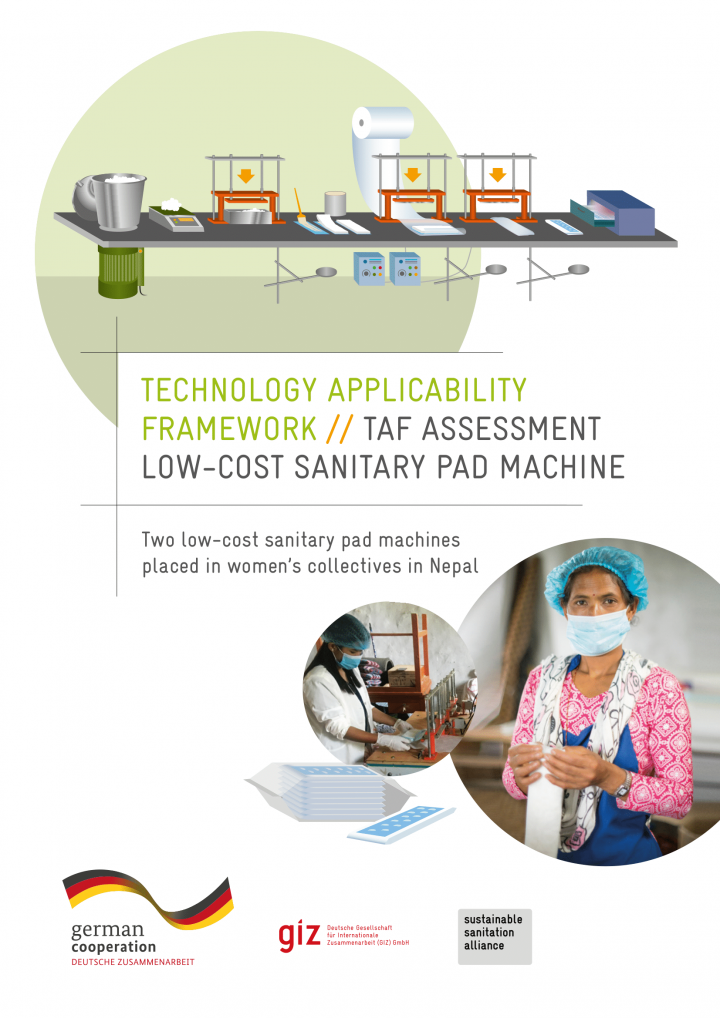Technology Applicability Framework - TAF Assessment low-cost Sanitary Pad Machines
Brama, K., Schlenk, J. (2019)

Published in: 2019
Pages: 36
Publisher:
Deutsche Gesellschaft für Internationale Zusammenarbeit (GIZ) GmbH, Eschborn, Germany
Author:
Brama, K., Schlenk, J.
Uploaded by:
SuSanA Admin
Partner profile:
Deutsche Gesellschaft für Internationale Zusammenarbeit (GIZ) GmbH
4068 Views
193 Downloads
This Technology Application Framework (TAF) Publication assesses two low-cost sanitary pad machines placed in women’s collectives in Nepal.
The German Development Cooperation through GIZ has started to be involved in Menstrual Health after the 2015 earthquake. A programme implemented by Nepal’s Ministry of Health and Population and facilitated by the German Development Cooperation has sought to address Menstrual Health and Hygiene Management particularly in rural, less accessible areas.
The initiative to set-up local production facilities of sanitary pads was made possible by using low-cost and easy to operate sanitary pad machines, designed by Arunachalam Muruganantham - the Indian “Pad Man”.
The TAF helps to understand if the current pilot approach fulfils the criteria for further implementation and scaling-up, by assessing the technology through the perspective of three key stakeholder groups engaged with the implementation of the Technology.
The two pad-machines evaluated were installed based on the concept (already taking place in over 20 other countries) that sanitary pad-production can support women in remote rural areas to obtain access to affordable sanitary pads while simultaneously providing them with a source of income and economic empowerment through a sustainable and scalable business model. By engaging women in the manufacturing and selling of sanitary pads, the initiative also helps to address the culture of restrictions, silence and taboos around menstruation within their community.
Taking the stakeholder feedback into account this publication found some mixed results for the 18 indicators scored by the different stakeholders.
However, a shared key conclusion is that there is clearly a need for local, low-cost production of sustainable sanitary pads in Nepal. Furthermore, since the Government of Nepal declared that free pads shall be distributed in public/community schools in low-cost sanitary pad machines can potentially have a role in fulfilling the commitment by provision distribute accessible, biodegradable/compostable, and affordable sanitary pads.
Bibliographic information
Brama, K., Schlenk, J. (2019). Technology Applicability Framework - TAF Assessment low-cost Sanitary Pad Machines. Deutsche Gesellschaft für Internationale Zusammenarbeit (GIZ) GmbH, Eschborn, Germany
Filter tags
East Asia & Pacific English Menstrual Health and Hygiene (MHH) Practitioners Women's rights & representation and empowerment















